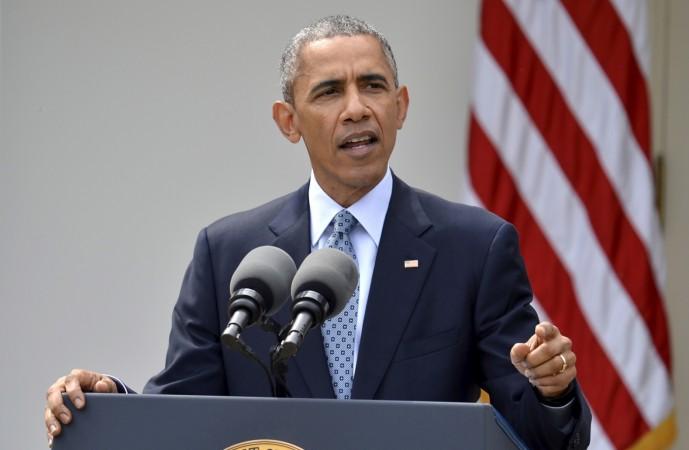
Russia has said that the United States President Barack Obama is deliberately creating hurdles for the President-elect Donald Trump by signing the annual defense policy bill.
The Russian foreign ministry, in a statement on Tuesday, listed a set of objections to the 2016 National Defense Authorization Act (NDAA), the renewal of talks about Russian aggression in Ukraine and also on the easing of restriction on supplying weapons to the rebels in Syria.
Russia says almost all dialogues with the US are 'frozen'
"Overall, it appears that the Authorization Act has been adopted by the outgoing Obama administration, which is hastily introducing new sanctions against Russia, to create problems for the incoming Trump administration and complicate its relations on the international stage, as well as to force it to adopt an anti-Russia policy," foreign ministry spokeswoman Maria Zakharova said.
"This policy has brought the current US administration, which believed that Russia would bow to pressure, into a dead end. We hope the new administration will be more sagacious," the spokesperson also added.
Trump, throughout his presidential campaign, had praised Russian President Vladimir Putin and had called him a strong leader. He has also indicated that he would like to improve relations with Russia and has also dismissed all the intelligence allegations of a Russian interference in the 2016 elections. The US intelligence agencies have said that Putin was personally involved in the elections hacking of the Democratic Party and Hillary Clinton's campaign emails to influence a win for Trump.
Obama, last Friday, signed the National Defense Authorization Act and the bill was passed by veto-proof majorities in both the House and the Senate earlier this month.
The bill, in the coming years, will prohibit military cooperation between Russia and United States until Russia ceases "its occupation of Ukrainian territory and its aggressive activities that threaten the sovereignty and territorial integrity of Ukraine and members of the North Atlantic Treaty Organization."
"It is unclear how Russia can threaten the sovereignty and territorial integrity of NATO member states when it is our American partners and their allies who have enhanced their military activities, expanding the territory of the alliance and moving their military capabilities closer to Russian borders. It is not surprising that we have to take this into account when planning our military development," Zakharova said.
















